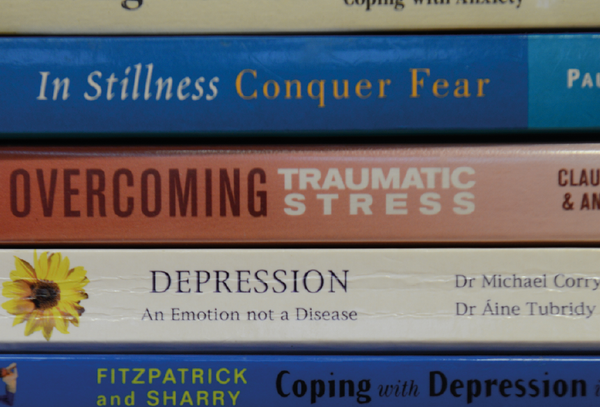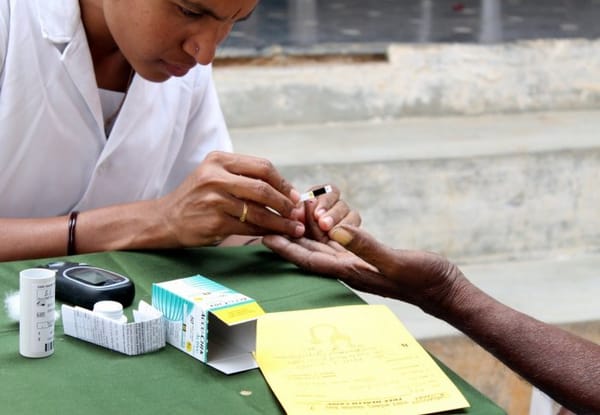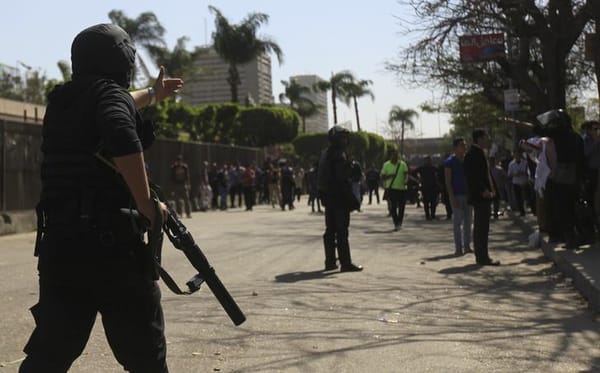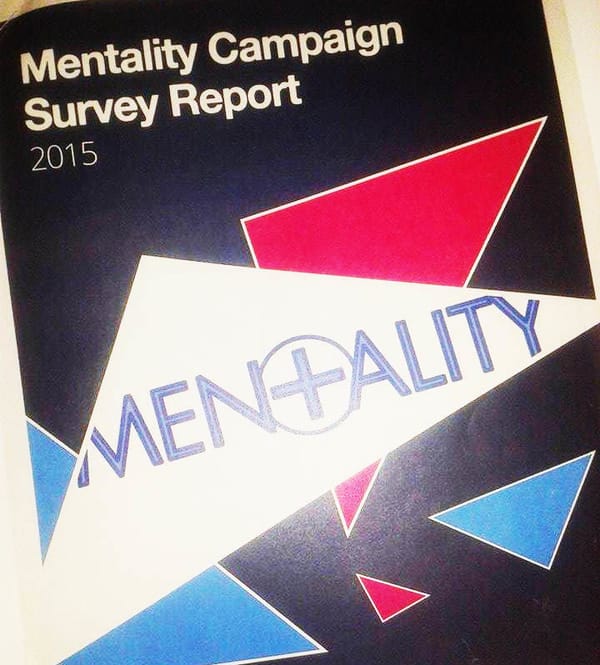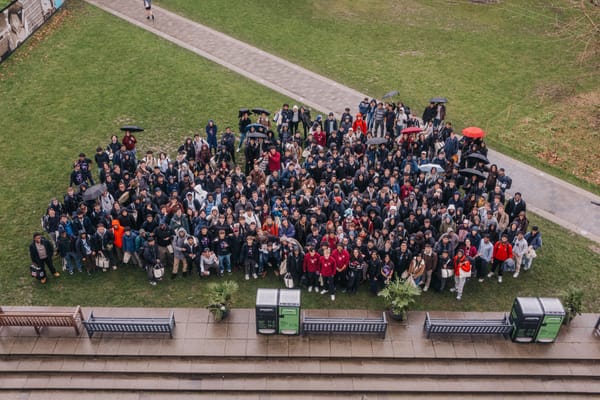Anti-Austerity Protests take place in Central London
Jack Steadman reports on the march that spread through the city on Wednesday
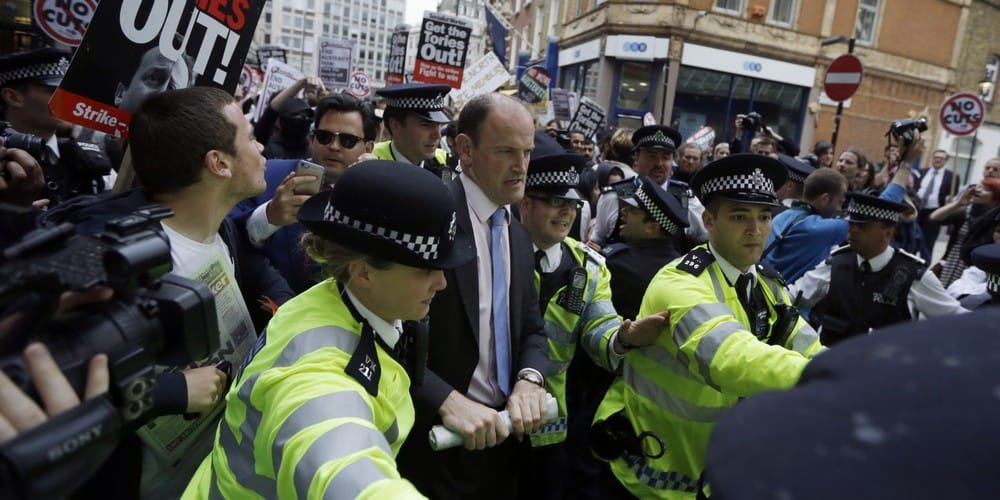
Anti-austerity protests took place in London on Wednesday, with demonstrators taking to the streets alongside the Queen’s Speech in the newly elected Parliament.
Organised by the People’s Assembly, the march covered large sections of central London, moving from outside Downing Street at around 5.00pm.
The march then continued for several hours, with protests spreading across the capital before once again coming together outside Downing Street.
The national secretary of the People’s Assembly claimed 2000 demonstrators were present for this main part of the protest outside Whitehall.
There were some clashes between police and protestors, with at least five protestors being arrested during the day. Two were arrested over ‘imminent breach of the peace’, while another was arrested on suspicion of violent disorder during previous protests.
The arrests were not representative of the protest as a whole, however. One protestor was Navid Nabijou, an Imperial student, who told Felix that “the level of support we received from bystanders was incredible. It was a bittersweet reminder that we live in a city which forcefully rejected the Tories at the election.”
Labour hold 45 of the Parliamentary seats in London, with the Conservatives on 27 and the Liberal Democracts on 1.
Nabijou describes the protest’s “palpable sense of anger and injustice… but also a feeling of hope, a determination not to sink into despair.
“Towards the end of the march a street party atmosphere developed, with ‘Dancing Queen’ playing on loudspeaker[s] and multi-coloured balloons floating above the crowd.”
The protests quickly took to Twitter, with the hashtag #FucktheTories the first to surface, with #antiausterity soon following.
Most participants used the platform to post updates on the status of the protests, with one noting that they were “now outside Downing St having a dance. Choice of music: ABBA. #FucktheTories”
There was also debate on Twitter over how people felt about the protests, with opinion proving divided.
One Twitter commentator remarked, “last time the braying mob tried to subvert democracy, Thatcher crushed them. Democracy will always win against #antiausterity thuggery,” while another tweeted that “Labour should be backing the #antiausterity protest in London. As a party we need to return to the left and represent working class people.”
Several tweets also referred to the group of protestors who encountered UKIP MP Douglas Carswell outside St James’ Park. The crowd jeered and swarmed Mr Carswell, shouting “racist, racist.” The police soon intervened, escorting him to a police van to allow him to escape.
Said one Twitter commentator: “Protestors have found UKIP MP Douglas Carswell and they’re not happy with him #FucktheTories.”
The People’s Assembly have confirmed they are planning further protests, scheduled to take place on the 20th June.
THOUGHTS OF A PROTESTOR
We assembled at around five o’clock outside Downing Street, and began to march. For three hours we marched, and though physically exhausted by the end of it, our high spirits kept us going.
The level of support we received from bystanders was incredible. It was a bittersweet reminder that we live in a city which forcefully rejected the Tories at the election.
There was a palpable sense of anger and injustice, with loud chanting along the whole route. At one point we assembled in Trafalgar Square and people were invited to share their own experiences of austerity.
But beyond this there was also a feeling of hope, a determination not to sink into despair. Towards the end of the march a street party atmosphere developed, with “Dancing Queen” playing on loudspeaker and multi-coloured balloons floating above the crowd.
The vast majority of economists now agree that reducing spending in a time of crisis only serves to depress growth and stifle the recovery. The experience of various post-crisis economies now provides ample evidence for this, and it goes some way to explaining why the Government hasn’t even come close to meeting the deficit reduction targets it set in 2010.
In reality, these cuts are ideological. Cameron and his inner circle have more or less admitted this, repeatedly stating over the last couple of years that even when they reach a budget surplus they will not be reversing their cuts to public services. They want to take us back to a level of spending not seen for almost a century. All of this is passed off as “common sense” or “tough choices”, when really it is about nothing more than shifting wealth from the poorest in society to the richest.
Protest can make a difference. In 1990, the movement of mass protest and civil disobedience against the Poll Tax led to the charge being repealed and Margaret Thatcher’s resignation as Prime Minister.
On the 20th June tens of thousands will join forces in the heart of London to send a message: we will not put up with these lies any longer. I hope to see you there.
NAVID NABIJOU


